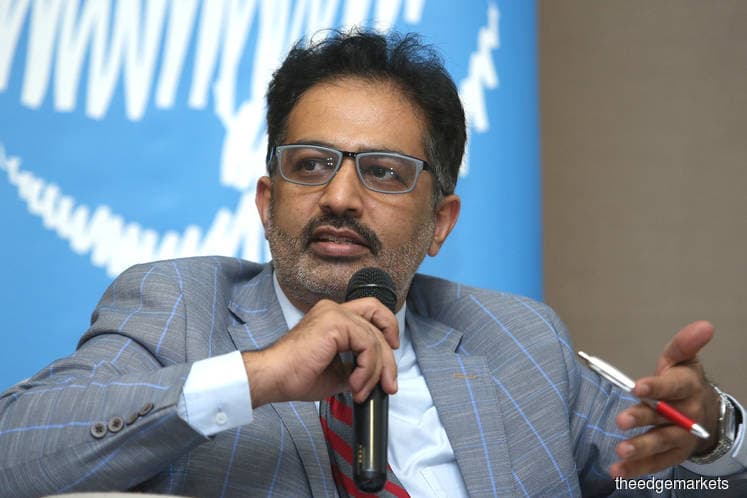
KUALA LUMPUR (June 28): The government is able to achieve a balanced budget in the next four years based on steps it is taking to reduce costs, observed the Institute for Democracy and Economic Affairs (IDEAS).
"If you look at how the government is moving toward cost rationalisation, especially from major infrastructure projects, these are positive signs," its chief executive officer Ali Salman (pictured) told reporters after the public forum hosted by the institute titled 'The Next Four Years: What Now for Malaysia?' here today.
"I do not think it is difficult to achieve a balanced budget, it is an achievable target," said Ali, explaining that Malaysia has demonstrated that it is able to reduce the country's expenditure.
For instance, he noted that the government has saved some RM35 billion through renegotiation of some megaprojects which include the East Coast Rail Link (ECRL) and Light Rail Transit 3 (LRT3).
Meanwhile, the country has a fiscal deficit of RM40 billion from the current budget, he added.
Citing IDEAS' second Projek Pantau report card, Ali said the government is on track to achieving many of the economic targets.
However, his biggest takeaway from the second Projek Pantau report card, which was released today, is that economics must be brought back into mainstream discussion.
According to this report card, which highlights the performance of 224 selected sub promises in the Buku Harapan in relation to the economy, institution reform and education, the government is already on track to achieving a third of the promises, but has yet to start realising another 30% of these promises.
In a press statement, IDEAS said promises that are achieved and on track include the abolition of the goods and services tax, raising the minimum wage in Sabah and Sarawak to match that in Peninsular Malaysia, significant new support for the growth of small and medium enterprises (SMEs), and a new plan to fight graft and reform the public procurement process through the National Anti-Corruption Plan (NACP) 2019-2023.
However, the government is still nowhere close to offering one million new affordable homes, government spending on public healthcare has not yet reached 4% of GDP, and there are no concrete steps to reform and re-examine the role of government-linked companies.
"We often hear from Prime Minister that he has focus on governance and corruption issues, but now is the time to bring back economic growth into mainstream discussion.
"In that sense, it is heartening to know about share prosperity, the new vision going forward, the industrial 4.0, technology advances, but we need to talk about high quality foreign direct investments (FDIs), high quality jobs for Malaysian, among many others," said Ali.